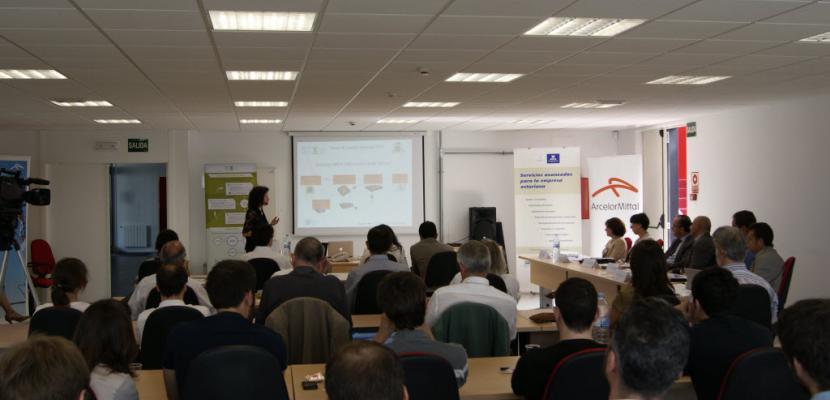
Primas Proof of Concept a public-private initiative

About this good practice
In March 2015 IDEPA and Oviedo University signed a collaboration agreement for implementing the Programme. Since 2015, 3 editions have been carried out, co-financed respectively with ArcelorMital, ILAS and ThyssenKrup Elevator Innovation Centre.
In each edition, IDEPA invites the Asturian leader companies to co-finance proofs of concept proposed by researchers, consisting of feasibility studies of ideas on scientific priorities and challenges of the Asturias RIS3 strategy for the application of their research results. It begins with the signing of the adhesion protocol by the driving company and a public call to the researchers, who have 2 months to present their candidacy
The jury select the candidacies after an act of public defence, based on criteria of scientific excellence, originality of the idea of application and foreseeable impact in the market. The researchers have 1 year to carry out the validation tasks. At the end they public present their conclusions or results and a final report. Dissemination and advertising is an outstanding element of this good practice since the Primas focus not so much on the project but on the analysis of the feasibility and the flow of knowledge that takes place between the researcher and the company, as befits an instrument based on open innovation.
Expert opinion
The programme Primas Proof of Concept is a public-private initiative to support research groups in developing proof of concepts. Proof of concepts correspond to the Technology Readiness Level (TRL) 3 where first laboratory testing is conducted and require close collaboration between research and industry Each edition of the programme is co-financed by IDEPA and a large private company to support proof of concepts in specific RIS3 priorities.
Some insights from the good practice:
-The programme facilitates university-industry collaboration in the early stage of the TRL. The programme is thus most relevant in regions where university-industry collaboration is low.
-The programme co-financing from the private sector motivates them to find research solutions to regional industrial R&D challenges. The programme’s main challenge is to identify the large private companies willing to financially contribute to the programme without clearly predefined returns.
Resources needed
Each Prima is endowed with 30,000€, contributed 50% by IDEPA and the participating company. After 3 editions have been carried out, with a total of 40 candidatures presented and 12 Grants awarded, there have been mobilized 720,000 €.
Evidence of success
There are reserach and innovation results achieved during the validation period. Furthemore, thhe impact goes beyond , some of the researchers of previous editions already had the opportunity to continue the collaboration with the company in different ways: public-private scientific publications , new research or demostration proyects ...
Potential for learning or transfer
The methodology is easily transferable as it does not require a large mobilization of resources and the formal and legal requirements are simple. It's interesting to concentrate it on regional scientific priorities and it is essential to have driving companies with R&D activity and interlocutors who can take advantage of the knowledge generated and, where appropriate, continue the collaboration with university researches
Further information
Good practice owner
You can contact the good practice owner below for more detailed information.
